
Distributed denial of service (DDoS) attacks are globally protected against using cloud DDoS mitigation software. DDoS attacks flood websites with traffic, which is typically supplied by “botnets” made up of malware-connected networked endpoints.
By keeping track of online traffic and establishing baselines for typical traffic levels, DDoS mitigation technologies protect against these attacks. These cloud-based solutions grow to offer complete protection regardless of an organization’s size and are often provided as a software as a service (SaaS) offering.
- DefensePro
- Cloudflare DDoS Protection
- Webroot DNS Protection
- DataDome
- Imperva App Protect
- Azure DDoS Protection
- AWS Shield
- Cloudbric
1. DefensePro
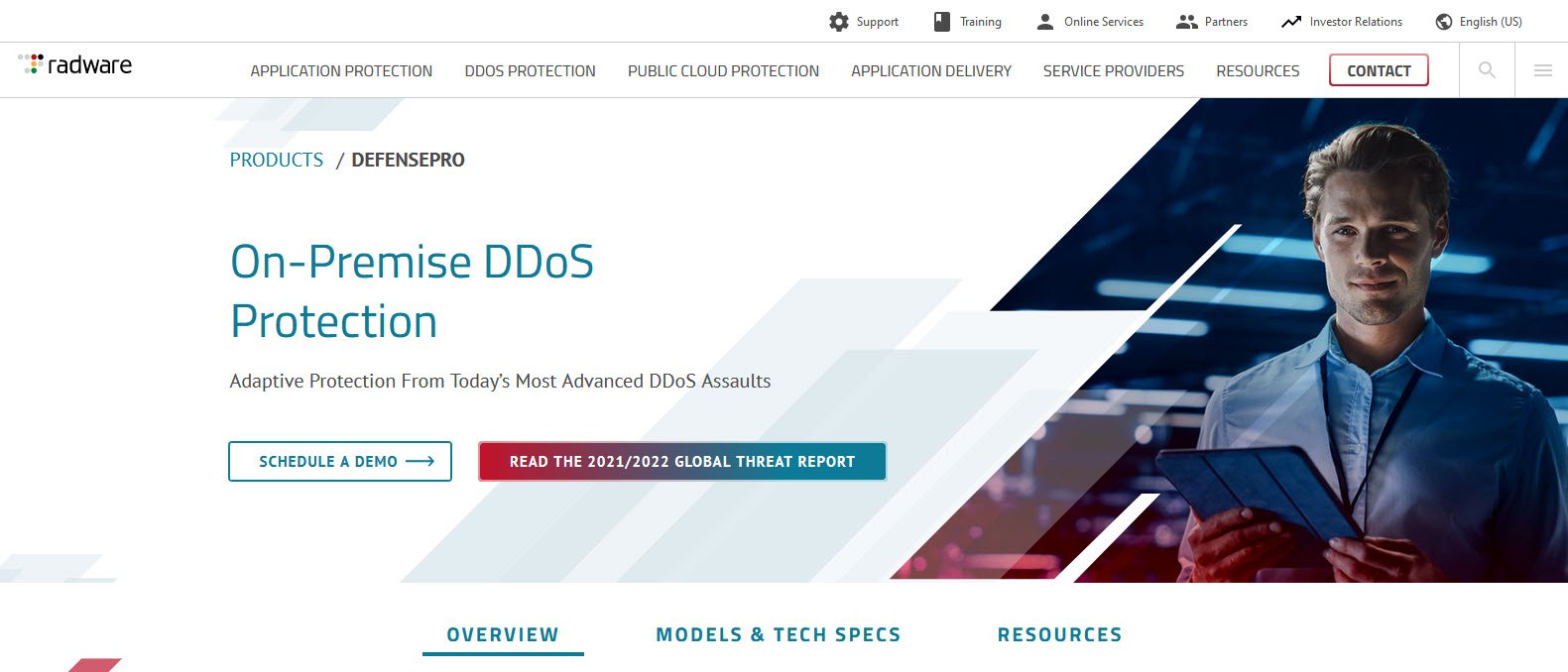
Part of Radware’s attack mitigation technology, DefensePro offers automated DDoS defence against quick-moving, high-volume, encrypted, or very-short-duration assaults. To protect enterprises from new network multivector attacks, ransom DDoS campaigns, IoT botnets, phantom floods, and other cyberattacks, it guards against IoT-based, Burst, DNS, and TLS/SSL threats.
Organizations can reliably and quickly detect assaults with DefensePro’s patented behavior-based detection algorithm while reducing false positives. Attack signatures can be created automatically to effectively defend against zero-day and unidentified assaults.
2. Cloudflare DDoS Protection
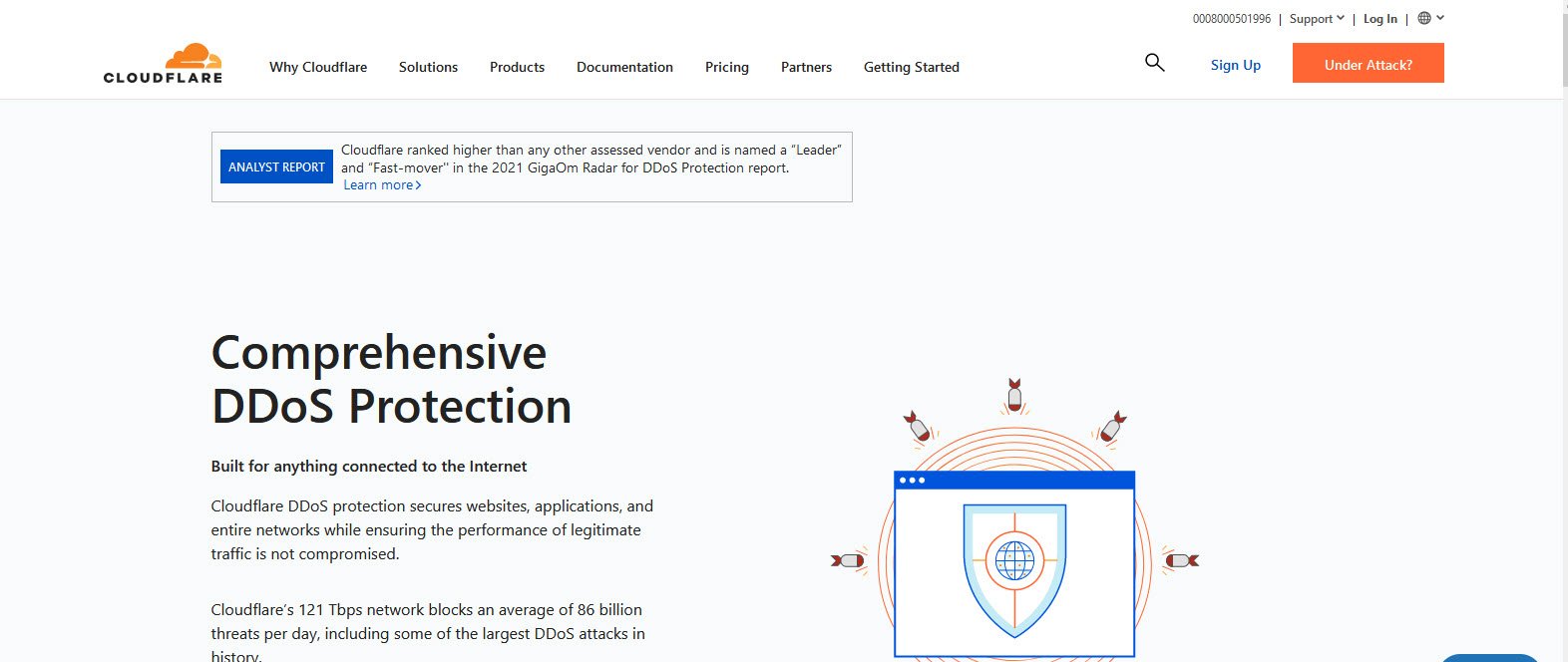

What if up to 88% of known malware could be stopped BEFORE it reached endpoints and networks? In fact, you can.
To stop malicious traffic and block malware before it infects your networks, endpoints, and end users, Webroot DNS Protection operates at the DNS layer. Additionally, by processing DNS over HTTPS (DoH) requests, it is the only DNS filtering software on the market to integrate privacy and security.
3. Webroot DNS Protection
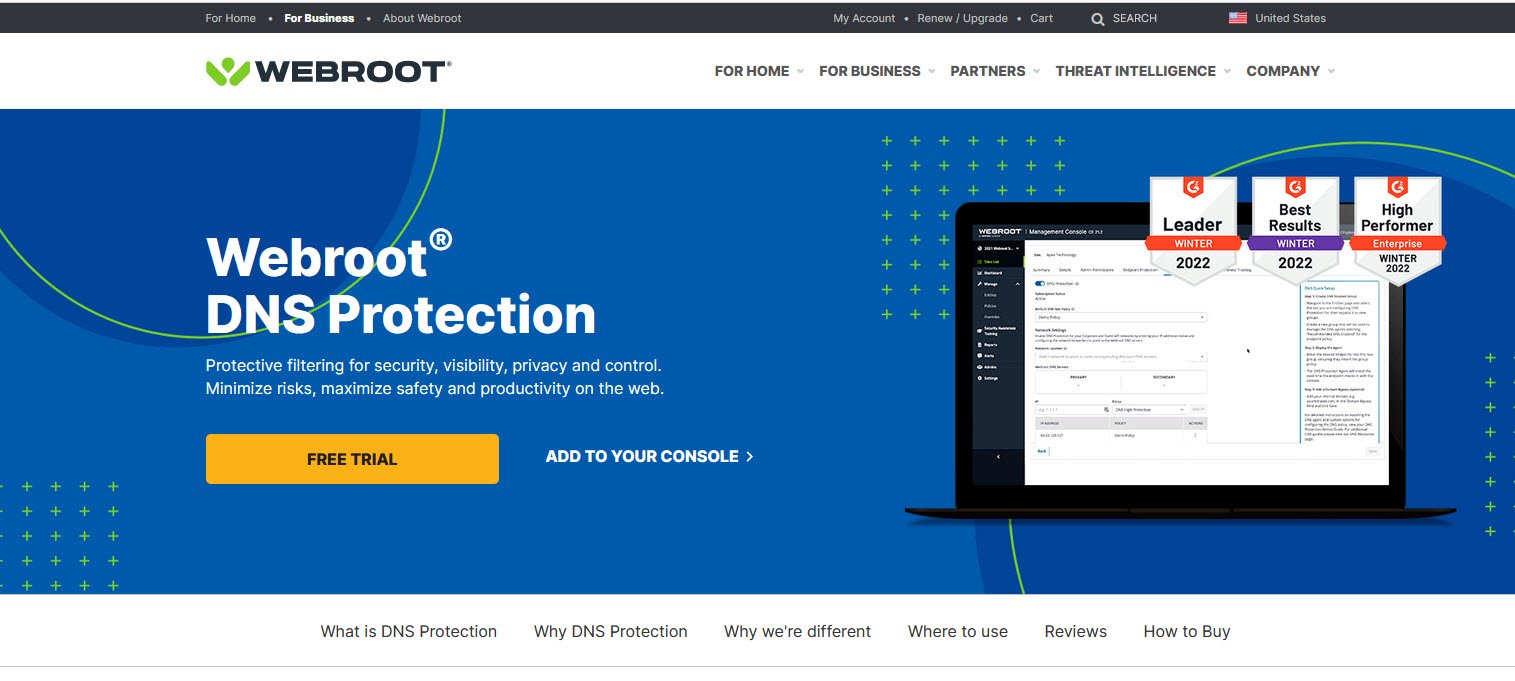
What if you could stop up to 88% of known malware BEFORE it hit endpoints and networks? Well, you can.
Webroot® DNS Protection works at the DNS layer to prevent malicious traffic and block malware before it infiltrates your networks, endpoints, and end users. Plus, it’s the first DNS filtering product on the market to combine privacy and security by handling DNS over HTTPS (DoH) requests.
4. DataDome
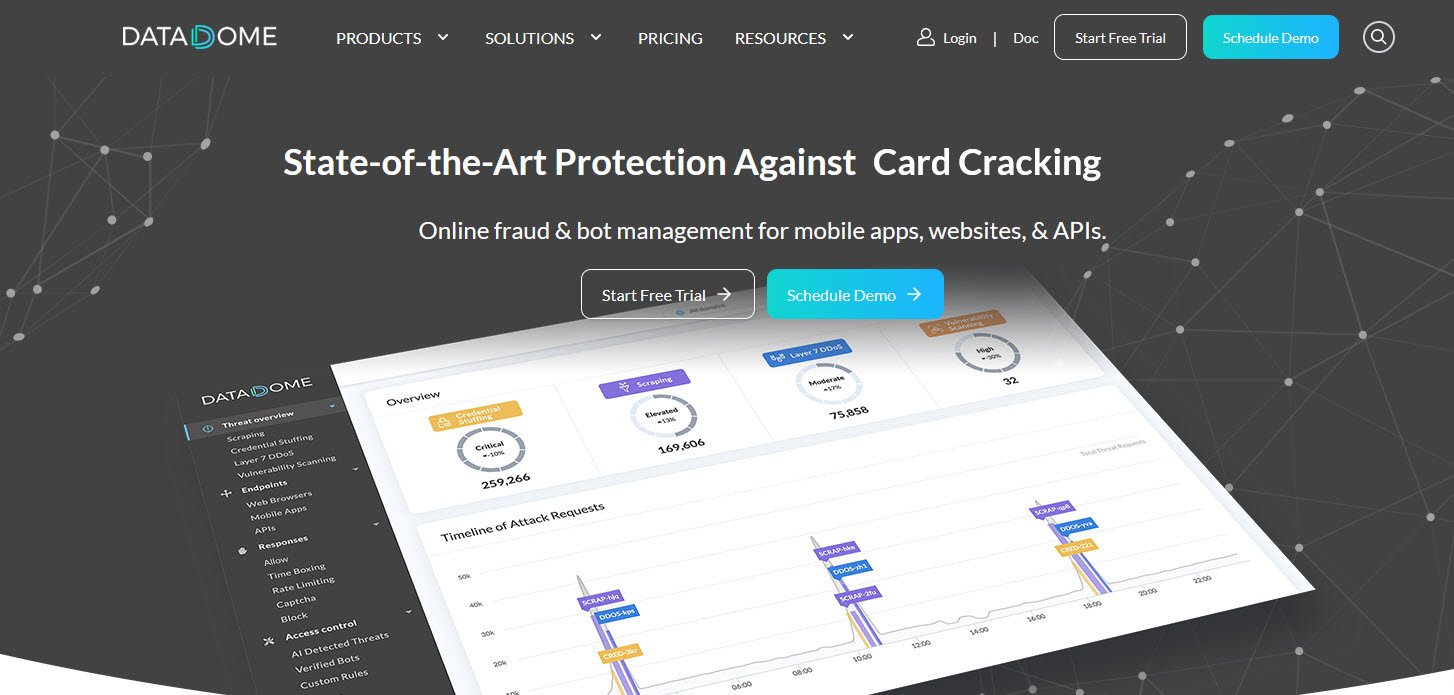
DataDome is establishing a new benchmark for managing online fraud and bots. We protect mobile apps, websites, and APIs from online fraud, such as scraping, scalping, credential stuffing and account takeover, Layer 7 DDoS attacks, and carding fraud. Our mission is to clear the web of fraudulent traffic so that sensitive data is safe and online platforms can operate at maximum speed.
In order to secure the biggest international e-commerce companies in real time, our AI-powered bot detection engine scans more than a TRILLION bits of data daily from 25 points of presence throughout the world.
5. Imperva App Protect
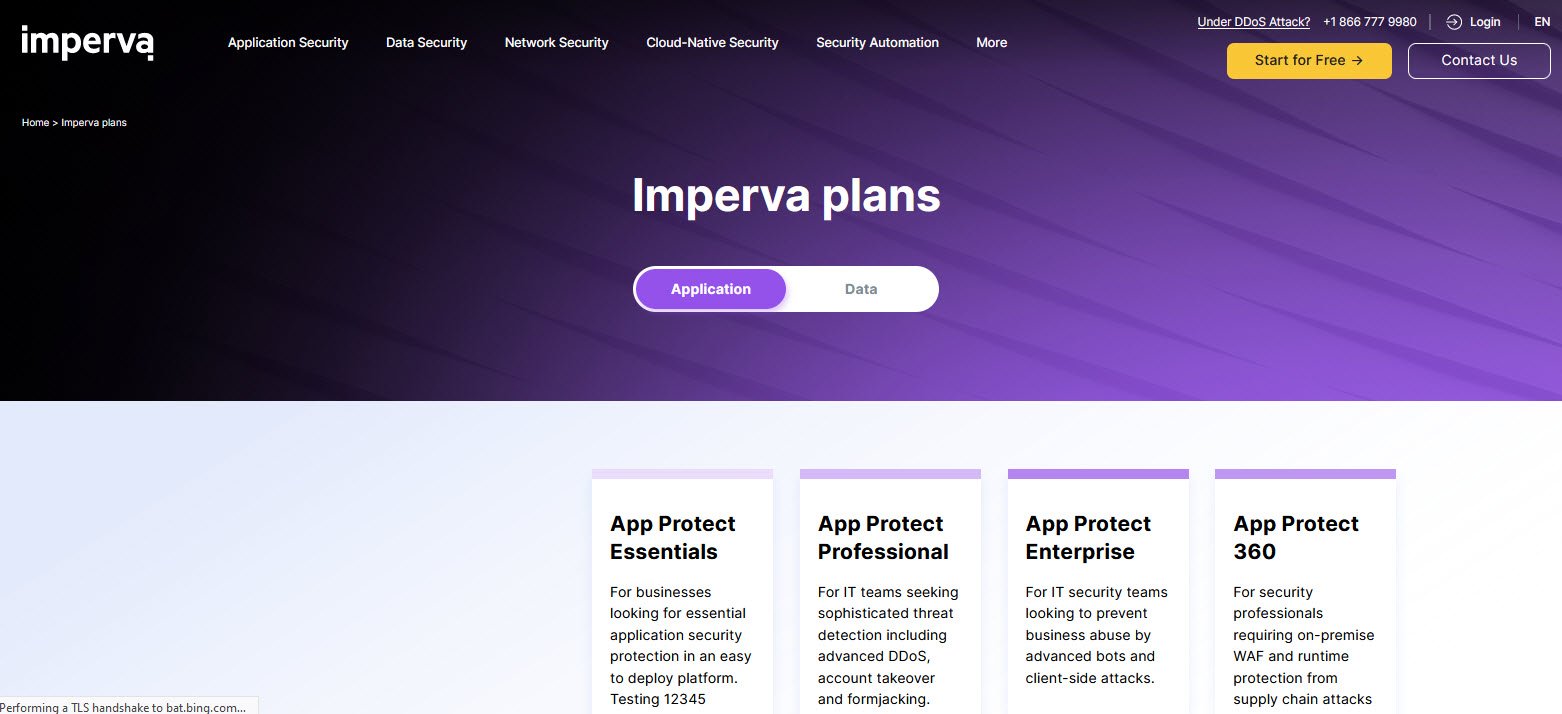
Imperva Incapsula offers a global CDN to speed up your website’s load time and reduce bandwidth usage, an enterprise-grade Web Application Firewall to protect your site from the latest threats, an intelligent and immediately effective 360-degree anti-DDoS solution (layers 3–4 and 7), and a variety of performance monitoring and analytic services to offer insights into the performance and security of your website.
6. Azure DDoS Protection
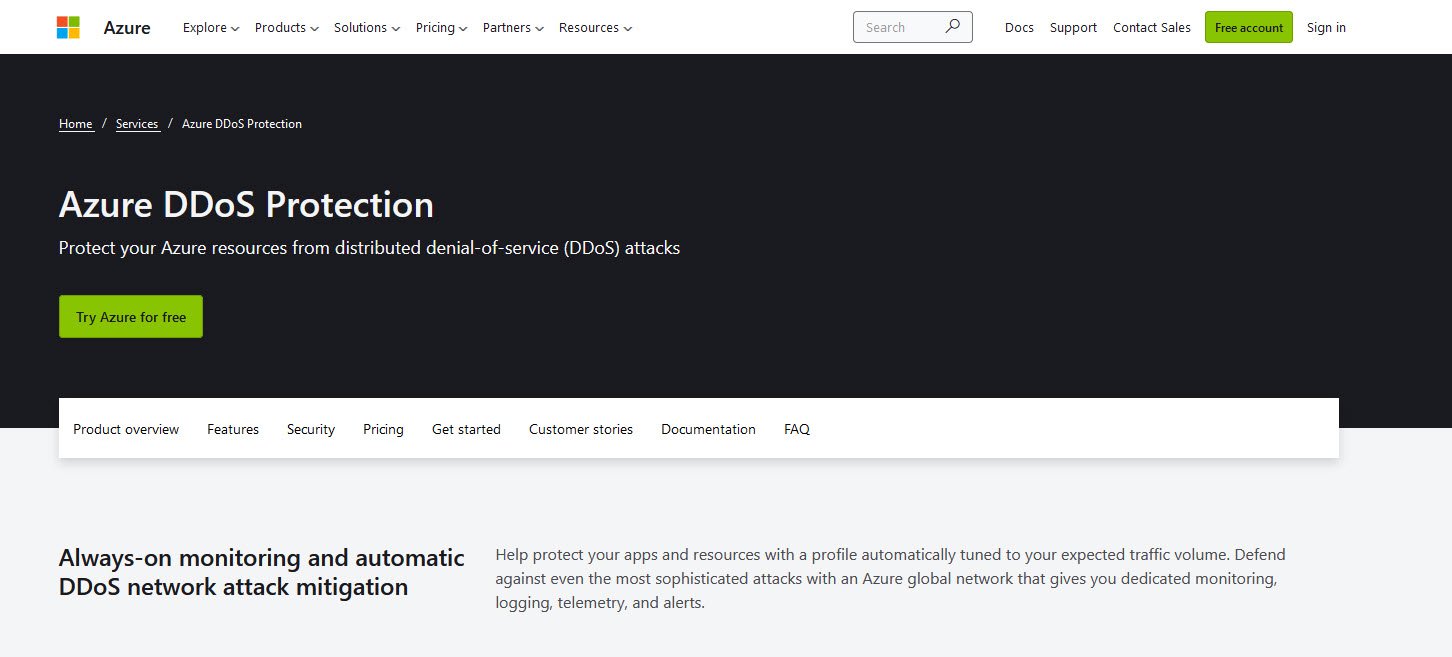
The Azure DDoS Protection solution protects Azure applications from the effects of DDoS attacks and is integrated with Virtual Networks. Beyond the fundamental DDoS Protection that is automatically provided in the Azure platform, it offers additional application-specific tweaking, alerting, and monitoring functionalities.
Azure DDoS Protection offers improved DDoS mitigation tools to stop DDoS assaults when combined with best practises for application architecture. In a virtual network, it is automatically configured to assist safeguard your particular Azure resources.
7. AWS Shield
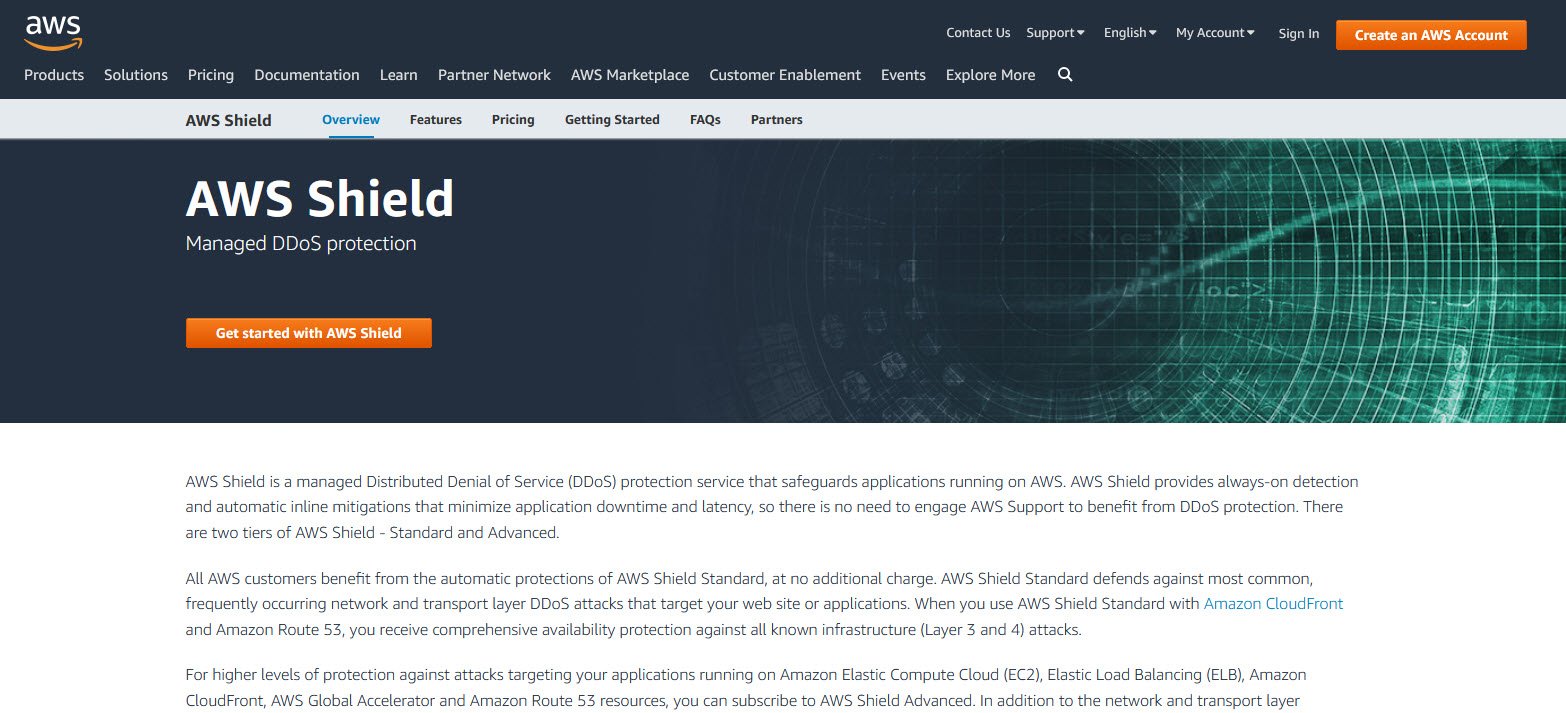
Web applications operating on AWS are protected by the managed Distributed Denial of Service (DDoS) security service known as AWS Shield. The always-on detection and automatic inline mitigations offered by AWS Shield reduce latency and application downtime.
For DDoS protection against all known infrastructure (layer 3 and 4) threats, use AWS Shield, a managed AWS Cloud solution.
There are two versions of AWS Shield: AWS Shield Standard and AWS Shield Advanced. The Advanced version offers much more strength and security than the Standard version.
Additional DDoS mitigation capabilities, sophisticated attack detection, and mitigation against assaults at the application (including AWS WAF) and network layers are also provided by this subscription service.
Shield Advanced offers further DDoS attack detection and mitigation as well as attack awareness in close to real-time.
8. Cloudbric

Providing SSL, DDoS protection, and an award-winning Web Application Firewall (WAF), Cloudbric is a cloud-based supplier of web security. SMB websites that lack cybersecurity expertise or cannot afford pricey IT security solutions are the main target market for Cloudbric’s security services.
You may also like:
